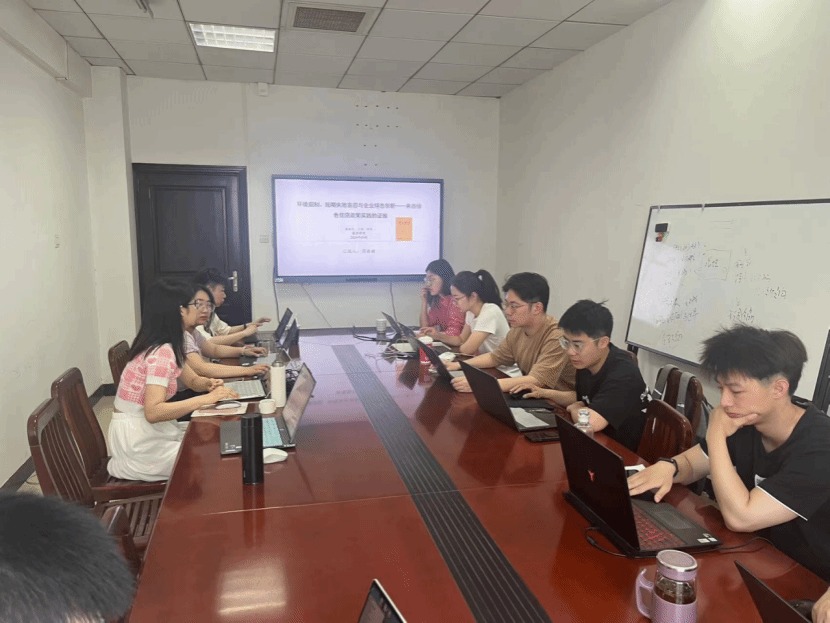时间:2024年4月27日(周日)9:00
地点:气候变化与能源经济研究中心会议室
Paper1:周婧婕 环境规制、短期失败容忍与企业绿色创新
摘要:已有文献大多支持环境规制促进企业绿色创新的论断。本文基于中国绿色信贷政策的实践,发现当绿色信贷政策缺乏短期失败容忍时,绿色信贷政策的实施将对企业的绿色创新产生负面影响。具体而言,当绿色信贷政策对企业短期创新失败缺乏足够容忍时,政策的实施不仅未能激励污染企业增加绿色创新,反而导致了创新抑制效应,且政策短期失败容忍越低,对污染企业的绿色创新抑制作用则越强。值得注意的是,提高专利保护执法力度在一定程度上能够缓解这种负面影响。此外,环境规制对企业短期创新失败的容忍会对企业的环境行为选择产生重要影响,进而对不同影响机制的作用产生影响。由于对企业短期创新失败的容忍不足,中国绿色信贷政策通过“挤出”效应和资源约束效应抑制了污染企业的绿色创新投入。研究结果表明,对企业短期创新失败的容忍是环境规制促进企业绿色创新的重要条件。
Paper2:潘欣 Energy-saving targets and carbon neutrality: A perspective on carbon emissions and carbon substitution in 288 Chinese cities
摘要:Environmental protection is a shared task among nations. In pursuit of its commitment to achieve carbon neutrality by 2060, China has implemented more robust energy-saving targets. This study utilizes panel data from 288 Chinese cities spanning from 2006 to 2020 to examine the policy effects of energy-saving targets on carbon neutrality. The findings reveal that (1) energy-saving targets positively impact carbon substitution, resulting in reduced carbon emissions and facilitating the progress towards carbon neutrality through three primary channels: energy governance, energy production, and energy consumption. (2) The influence of energysaving targets on carbon neutrality exhibits a significant spatial spillover effect, driven primarily by the reduction in carbon emissions, although the spatial spillover effect of carbon substitution is relatively limited. The collaboration between the government and enterprises plays a crucial role in achieving carbon neutrality, while the engagement of the general public is yet to be fully realized. (3) However, the inadequacy of enhancing carbon neutrality through energy-saving targets lies in the compulsory emissions reduction behavior at the expense of sacrificing some economic benefits in cities that overachieve energy-saving targets. This undermines the coordinated development of ecology and economy. Therefore, it is recommended to establish a policy implementation monitoring system to ensure the scientific basis of policy objectives, enhance the level of green echnology innovation, accelerate the digital transformation of enterprises, and establish a synergistic mechanism that involves multiple stakeholders.
